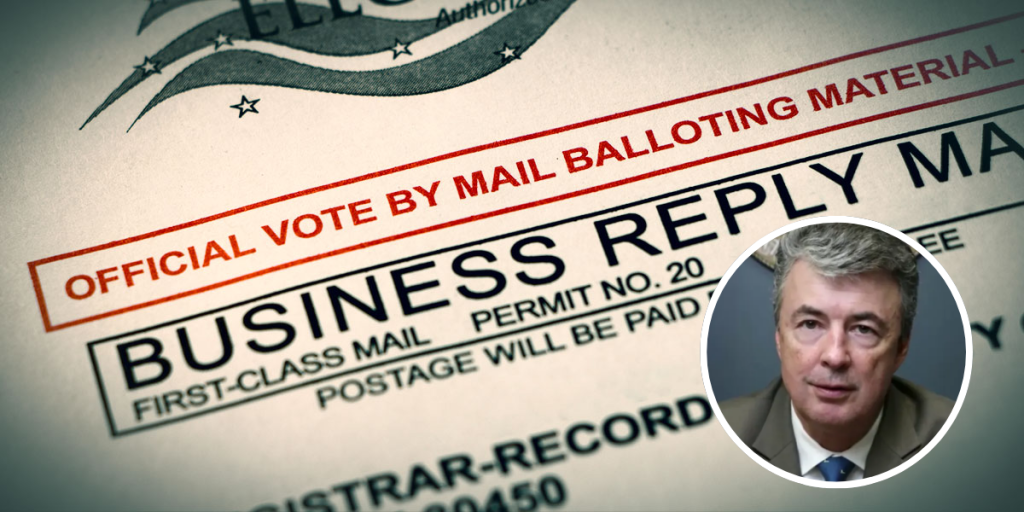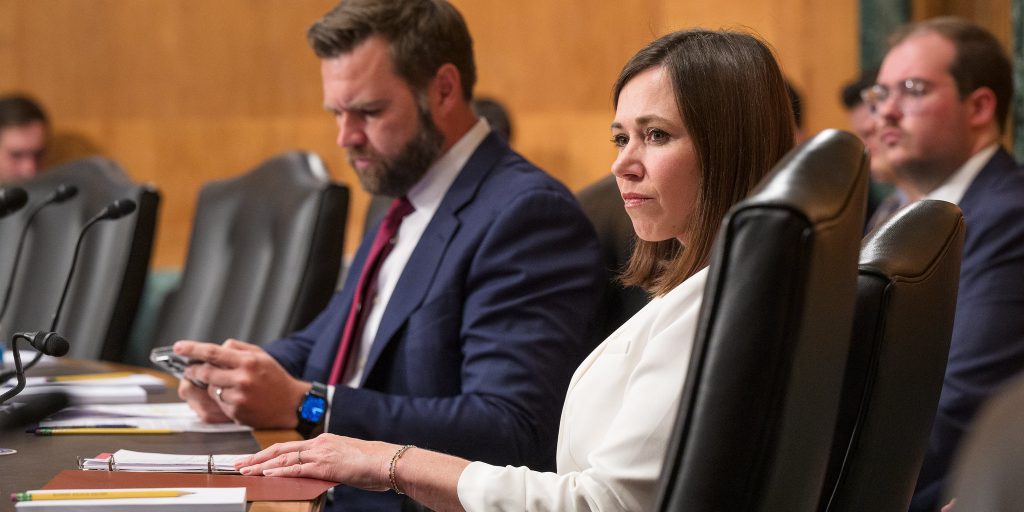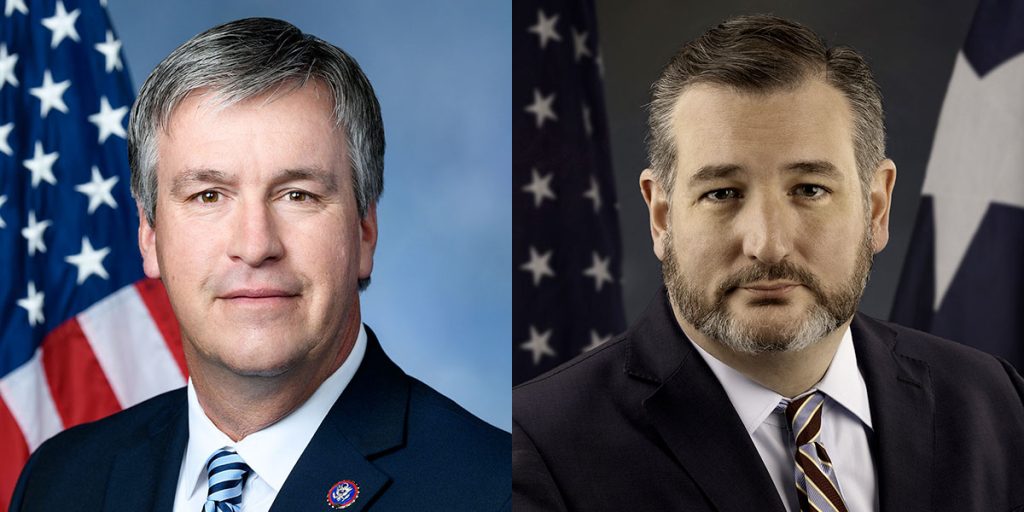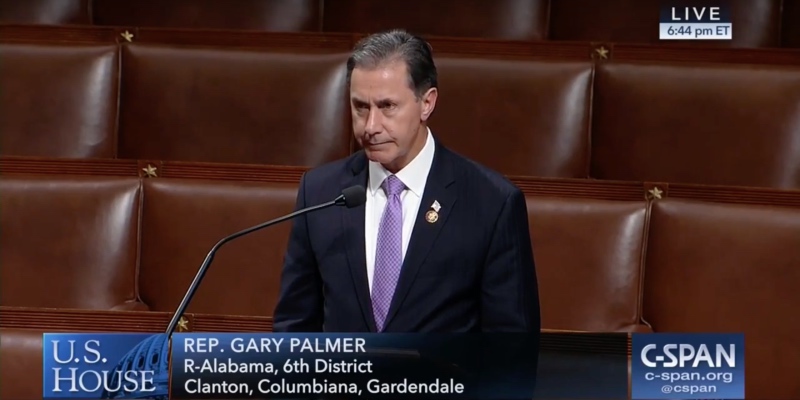Congressman Bradley Byrne (AL-1) has been chosen by the Trump administration as the House of Representatives sponsor for a landmark school choice bill previewed in the president’s State of the Union address earlier this month.
Byrne will introduce the bill Thursday at 10:00 a.m. CST in Washington, D.C. alongside U.S. Department of Education Secretary Betsy DeVos and Senator Ted Cruz (R-TX), who is sponsoring the legislation in the upper chamber.
In an interview with Yellowhammer News Wednesday, Byrne explained that his involvement in the new proposal, which is being hailed as “historic” by the Trump Education Department, began when he hosted DeVos for a visit to Mobile in 2017.
However, Byrne’s interest and involvement in education policy issues goes back decades, exemplified by his time serving on the Alabama State Board of Education and later as chancellor of the state’s two-year/community college system.
He said he is “honored” to have been trusted by the Trump administration with this important presidential priority. Byrne advised that he has already spoken with Cruz about the bill, too.
“I’ve had a couple of conversations with him about it, and we’ll be working together to push this piece of legislation that’s so important to President Trump through Congress,” Byrne said.
General overview of the bill
The bill, building specifically on Trump’s call for increased school choice in the State of the Union, is similar to a federal version of the Alabama Accountability Act. It would create a new dollar-for-dollar, non-refundable tax credit for contributions from individuals and businesses to state-identified nonprofits called Scholarship Granting Organizations (SGOs).
SGOs would distribute these contributions as scholarships, expanding students’ access to a variety of educational opportunities, including private education advanced, remedial and elective courses; private and home education; tutoring; educational therapy; concurrent and dual enrollment; apprenticeships; industry certifications; summer- and after-school education programs; and transportation.
Byrne noted that for states like Alabama that have already successfully implemented this type of tax credit system, the new federal program would be supplemental and not a substitute for the state-run system.
“I think it’s very important that we give opportunities to all children in America,” he outlined. “And to force children, or the parents of their children, to send their children to these schools that perennially fail – that’s like confining those children to a second-class existence. That’s not America. America gives people equal opportunity and in the 21st century, if we’re going to give you equal opportunity, we’ve got to give you equal opportunity to a high-quality education. If we don’t, you’re a ‘have-not.’ And that should not be America.”
Byrne, coming from a district and state where manufacturing and other skilled-labor industries are a critical component of the economy, emphasized that he “feels strongly” about the inclusion of workforce development-focused educational offerings in the new bill. He spoke to the fact that business owners in Alabama – and across the nation – have been identifying the urgent need for more qualified workers as unemployment has gone down in recent years.
“We’re creating lots of high-wage, good jobs – not just in Alabama but around the country – but we’re having a hard time finding the people to fill all those jobs,” Byrne explained. “So, this creates a scholarship for people that don’t have the education or skills to take advantage of these jobs, to go out and get that education [and] those skills so they can get the jobs and make a lot better money than they’re making today.”
He continued, “So, I feel very strongly about it. The president feels very strongly about it. You look at my background, and I’ve been working on these things for 20 years. And the president is certainly a big proponent of it, so this is an idea whose time has come, and I think you’re going to see a lot of bipartisan support for that part of it.”
What’s next?
While he and Trump are certainly hand-in-hand on this specific policy issue, the president’s trust in Byrne to carry the bill in the House signifies a strong overall working relationship between the two men. In a state where Trump has routinely enjoyed his highest approval numbers in the nation, this could be a bonus for Byrne – who is the only currently announced Republican candidate against Sen. Doug Jones’ (D-AL) 2020 re-election bid.
“The opportunities for Alabama and for individuals citizens of Alabama depend on our ability to have good, high-quality education at every level, for every person in the state. And I’m going to use my position in Washington every way that I possibly can to give Alabamians more opportunities for higher education and better education,” Byrne stressed. “And this is just one example of the efforts that I’ve been making for awhile to do that.”
He added, “Now, I’m not doing this alone. I’m a part of a team, and I appreciate being a part of this team. The trick here in Washington is to understand that you build teams of people to create policy that works for people. So being a part of a team that’s advancing President Trump’s policy on school choice is exactly what I think I’ve been prepared to do, going back decades before I got here.”
Byrne expects some of his fellow Alabama congressional delegation members to cosponsor the legislation.
Specifics on the bill will be released Thursday at the official announcement at the U.S. Department of Education’s headquarters. The event will be live-streamed on Facebook and Twitter.
You can read a joint op-ed by Byrne, DeVos and Cruz released Thursday morning here.
Sean Ross is a staff writer for Yellowhammer News. You can follow him on Twitter @sean_yhn













